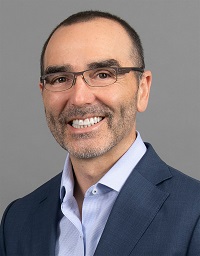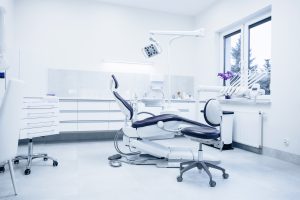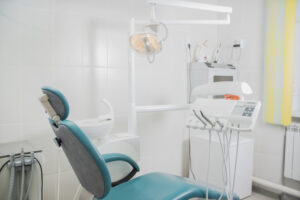
Medical Aesthetics Practices, or Medical Spas (often called “Med Spas”) are a growing industry within the healthcare space, and with that growth, owners of Med Spas are selling their practices with greater frequency. Why? Well, with growing prevalence, the buyers in these transactions are private equity firms, and the opportunities for the owners of Med Spas to exit their businesses and to partner with a private equity firm are seen as a win-win for all involved. But what does a private equity firm bring to the table in this transaction that makes it a win-win for all involved? Partnering with private equity firms is often seen as a value-add for healthcare practices because the private equity firm maintains significant capital, as well as operational and financial expertise and efficiency.
Private equity firms commonly institute what is known as a “rollup strategy” for buying healthcare practices, including those in the Med Spa space. As healthcare attorneys working in this space, both on the buy-side and the sell-side of these transactions, we thought it would be helpful to post some blogs on what this all means and why the Med Spa space is an excellent candidate for the rollup strategy.
First, a Little Background on what is a Medical Aesthetics Practice, or Med Spa?
A medical aesthetics practice, or Med Spa, is a medical practice that performs procedures aimed at improving the cosmetic appearance of patients. The procedures offered by a medical aesthetics practice can range in invasiveness, from topical treatment to in-patient surgery. For example, procedures offered at these practices can range from facial injectables such as Botox or fillers, to surgical procedures such as liposuction, rhinoplasties, or facelifts. These procedures may be performed by physicians, nurses, physician assistants, or even other types of licensed practitioners depending on state regulations and the type of services provided at the practice.
What is a Private Equity Roll Up Strategy and what are the advantages?
A rollup strategy is used by private equity firms in the healthcare space to acquire practices in the same specialty, with similar operational and financial metrics, and with similar expectations and interests of growth by all involved, both from an organic perspective, and from the perspective of “we are all stronger together than we are alone.” The goal is to merge the practices together to create a larger, more diversified collection of practices, comprising a “portfolio.” It is a strategy ripe for the healthcare space because traditionally, the healthcare space is made up of many smaller, independently owned practices.
A rollup strategy allows for the private equity firm to grow a portfolio of practices while keeping certain costs disproportionately lower. For example, marketing, administrative, and other ancillary costs may not rise proportionally with the increase of practices that a particular firm may bring on board, meaning that as the portfolio grows, the costs associated with maintaining each practice may decrease proportionally. This tactic inherently increases revenue by keeping costs disproportionately low.
In turn, increased revenue over time increases a portfolio’s EBITDA. EBITDA refers to Earnings Before Interest, Tax, Depreciation, and Amortization. An EBITDA is a measure used by private equity firms in transactions to value a company based on its ability to generate revenue, and to assess the overall financial performance of the portfolio. An EBITDA calculation is an important measure to gauge and monitor as it directly impacts the overall enterprise value of a practice or portfolio in a healthcare transaction, and significantly impacts the multiple used by private equity firms in establishing that overall value.
Where in the Healthcare Space Have Rollups Become Common Place?
As stated above, a rollup strategy works best in an industry comprised of small, fragmented practices that are independently owned. As a whole, the healthcare space utilizes this model. Healthcare practitioners are often broken up into smaller practices or subsects of the healthcare landscape. From the emergency room physician groups to the local general practice dentists’ office, this model is commonplace in the industry overall. We have also seen rollups become common place in specialties including cardiology, radiology, ophthalmology, nephrology, and in specializations within the dental industry including periodontics, oral surgery, orthodontics, and endodontics.
Why is the Med Spa Space a Prime Specialty for Healthcare Rollups?
The Market is still Highly Fragmented.
As we discussed, a rollup strategy is effective in specialties that utilize small, independently owned practices. According to the American Med Spa Association, in 2022, 66% of Med Spas were owned by independent practitioners. Meaning, the space has many opportunities for private equity firms to combine smaller Med Spa practices into a rollup.
Demand for Aesthetic Procedures is Increasing and Shown to be Resilient.
While one would expect that a practice that bases its services on non-essential care, such as aesthetics, would be highly susceptible to market conditions, the Med Spa industry has shown itself to be resilient in times of financial stress. For example, during 2020, the Med Spa industry’s overall revenue dipped, but immediately rebounded in 2021 with an increase in overall revenue growth compared to the state of the market prior to 2020, and by reaching more patients than pre-2020. With industry resiliency to financial stress, the Med Spa industry is an attractive candidate for private equity rollups.
The Industry is Projected to Continue Growing.
Prior analyses have shown that the Med Spa space is already a multi-billion dollar industry with North America maintaining the largest revenue share of the market. Additionally, the Med Spa industry has seen strong growth in recent years, growing by roughly 10% each year since 2017. Market projections also expect the industry to continue growing through at least 2030. With the largest revenue share in a highly profitable industry that is only expected to continue growing, the Med Spa space is a prime specialty for private equity firms to undertake a rollup.
We have helped many clients structure and initiate the platform necessary for the roll-up of healthcare practices and see this particular opportunity for Med Spas, as well. If you are Med Spa looking to expand or a private equity firm looking to create a new platform for the next investment opportunity for your investors, give us a call. And, if you are a Med Spa looking to consider your succession planning opportunities, let’s talk.
 Vince Nardone is a partner with Benesch, with a focus in Benesch’s healthcare practice, and specifically a leader in the dental industry. He is a thought leader and regular speaker in the dental industry. He may be reached at (614) 223-9326 or vnardone@beneschlaw.com.
Vince Nardone is a partner with Benesch, with a focus in Benesch’s healthcare practice, and specifically a leader in the dental industry. He is a thought leader and regular speaker in the dental industry. He may be reached at (614) 223-9326 or vnardone@beneschlaw.com.
 Benjamin Stucke is an associate with Benesch, and focuses his practice on corporate healthcare transactions. He may be reached at (614) 223-9310 or bstucke@beneschlaw.com.
Benjamin Stucke is an associate with Benesch, and focuses his practice on corporate healthcare transactions. He may be reached at (614) 223-9310 or bstucke@beneschlaw.com.
 Vince Nardone Discusses Employment Contracts with Ohio State Dental Students
Vince Nardone Discusses Employment Contracts with Ohio State Dental Students  Navigating the 2024 Landscape: Strategies and Considerations for Dental Support Organizations (DSOs)
Navigating the 2024 Landscape: Strategies and Considerations for Dental Support Organizations (DSOs)  Sellers of Dental Practices to DSOs need to have a Buyer’s Mentality Requiring Selectivity and a Well-Thought-Out, Decision-Making Process
Sellers of Dental Practices to DSOs need to have a Buyer’s Mentality Requiring Selectivity and a Well-Thought-Out, Decision-Making Process  Increasing Profitability by Minimizing Disruptions within Your Dental Practice
Increasing Profitability by Minimizing Disruptions within Your Dental Practice  As a Dentist, What Are My Obligations Related to Out-of-State Patients and Potential Prescription Drug Abuse?
As a Dentist, What Are My Obligations Related to Out-of-State Patients and Potential Prescription Drug Abuse?